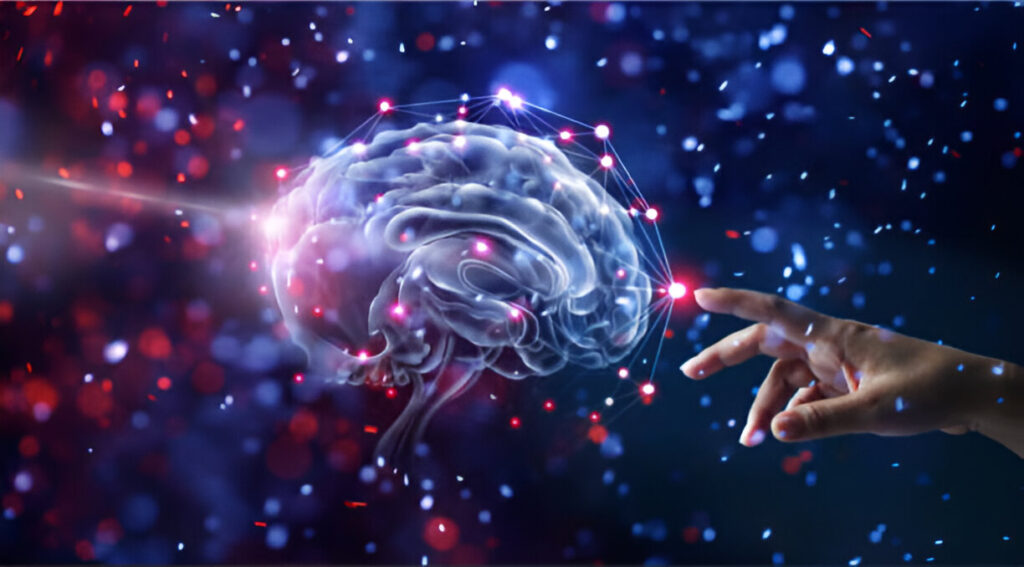Connection Between Emotional and mental health profoundly impacts how we process experiences and handle stress daily. While bearing similarities, they constitute distinct yet interrelated facets of our overall condition.
Both significantly affect relationship-building, functioning, and navigating the world. Grasping their interplay is pivotal for cultivating equilibrium and resilience.

What Is Emotional Health?
Emotional health fundamentally shapes well-being. It governs how we perceive and move through existence. Denoting recognizing, comprehending, and productively managing emotions enables addressing life’s tests and making informed choices.
Emotional health transcends avoiding or quashing negative feelings but means processing and reacting constructively for mental, physical, and social welfare.
Central to emotional health is emotional awareness, identifying sentiments and their sources. It also contains emotional regulation, our capacity to express feelings constructively, and resilience rebounding from setbacks.
Those emotionally healthy wield instruments for dealing proportionally with ups and downs, allowing purposeful living amid inevitable stressors and difficulties.
The Key Aspects of Emotional Health
1. Emotional Awareness and Understanding
Being emotionally fit signifies cognizance of your feelings. Emotional discernment is the cornerstone of emotional well-being, detecting and comprehending the sentiments you experience.
When you have elevated emotional discernment, you can identify the early signs of emotional reactions and correctly label your feelings. Understanding the origins of these emotions, whether they’re frustration, delight, fear, or excitement, assists you in handling them without being overwhelmed.
For example, if you’re sensing anxiousness, emotional discernment lets you grasp that this anxiety might arise from a specific source, like work demands or personal life stressors. By identifying the cause, you can better address the root of your anxiety rather than just reacting to the surface sensation.
2. Emotional Regulation and Expression
Emotional health revolves around learning to govern your emotions. While it is natural to feel anger, sadness, or anxiety, the capacity to manage and communicate these emotions suitably is what distinguishes emotionally fit individuals.
This does not signify stifling emotions; instead, it involves comprehending your emotional triggers, stepping back when necessary, and selecting an appropriate response.
For instance, feeling irritated during a disagreement is normal, but how you express that irritation matters. Emotionally fit people can communicate their rage tranquilly without resorting to aggressive behavior or shutting down entirely.
They may utilize ” statements like “I feel upset because…” to convey their feelings constructively. Healthy emotional regulation allows us to express ourselves genuinely while maintaining respect for others.
3. Building and Sustaining Relationships
Emotionally fit people can form strong, meaningful relationships because they effectively understand and govern their emotions. Healthy relationships rely on communication, empathy, and emotional intelligence the capacity to understand and respond to the sentiments of others. When emotionally fit, we can empathize with others, listen attentively, and offer support when needed.
Additionally, emotionally healthy individuals know when to set boundaries. They can say “no” when necessary and prioritize their emotional well-being without feeling guilty. They recognize the importance of maintaining their emotional health in relationships, ensuring they aren’t restrained or overwhelmed by emotional needs.
Life is full of stress, setbacks, and challenges, but emotionally healthy people find adaptive coping methods. Instead of isolating themselves or overworking to numb complicated feelings, they seek healthier outlets like exercising, journaling about their thoughts and feelings, or leaning on trusted friends and family members.

Resilience plays a critical role in emotional health, as it helps individuals bounce back from difficulties, learn from setbacks, and become stronger in the face of adversity.
Resilience isn’t about avoiding pain or discomfort but developing one’s emotional strength to move forward, even in tough times.
Self-awareness, the ability for deep introspection, is also essential. When self-aware, we understand our emotional patterns, needs, and desires and how our actions align with our values.
Self-awareness empowers us to take responsibility for our emotional state and make necessary changes. Along with self-awareness comes self-acceptance.
Embracing oneself fully, flaws and all. With self-acceptance, we relieve pressure to be perfect, which reduces stress and anxiety. It allows us to develop a more positive and compassionate relationship with ourselves.
The Importance of Emotional Health
Emotional health ensures our ability to flourish. How we feel colors every aspect of life: labor, bonding with others, and enduring hardships. Emotional health bolsters our aptitude to form lucid conclusions, solve puzzles, and sustain constructive relationships.
It also relates to actual health, as emotional wellness aids a more hearty immune system and improved rest quality, among other advantages.
When our emotional health maintains equilibrium, we approach difficulties positively and resiliently. Yet deficient emotional health can contribute to a host of mental health issues, like anxiety, melancholy, and stress-linked disorders. Accordingly, nurturing our emotional health is as crucial as sustaining our health.
By cultivating emotional health, we generate a basis for a more gratifying life that allows us to participate in experiences fully, appreciate life’s beauty, and cope with hardships in ways that guide individual progress and strengthen bonds.
Key components of emotional health include emotional awareness, self-regulation, empathy, and resilience. Emotional health doesn’t mean evading negative emotions but being able to navigate them productively and confirm that they don’t meddle with our daily functioning or overall contentment.

What Defines Mental Health?
Mental health affects our overall well-being, affecting our thoughts, sentiments, and actions. It is a broad notion encompassing our cognitive, psychological, and social well-being. Mental health influences how we handle stress, social interaction, and decision-making, which are all part of our daily lives.
Notably, mental health is not merely the absence of mental illness but the presence of emotional and psychological durability that allows us to thrive, cope with adversity, and lead fulfilling lives.
While genetics, upbringing, experiences, and social circles significantly impact mental health, it’s an ever-changing facet of wellness that fluctuates based on internal and external factors.
We all encounter periods of emotional turbulence or challenges to our mental stability; just as we tend to our physical bodies, we must nurture and protect our minds.
Whereas mental health involves managing mental illnesses, it also refers to the positive aspects of psychological prosperity like emotional balance, clear thinking, and maintaining healthy relationships. An individual with good mental health can effectively function daily, keep a positive outlook, and handle life’s difficulties.
Mental health is fundamentally essential for living a balanced, healthy life. Just as physical health allows us to perform tasks and engage with the world, mental health affects how we process information, make decisions, interact with others, and approach life. It is integral to our productivity, self-esteem, and ability to cope with stress.
Strong mental health provides a solid foundation for building and sustaining meaningful relationships, achieving career goals, and facilitating personal growth. People with good mental health can think more clearly.
Act thoughtfully and experience more fulfilling and stable emotional lives. Mental health is essential to the stability and functionality of our day-to-day existence, and when mental health deteriorates, it can impact every other aspect of our well-being.
Mental wellness is interconnected with bodily fitness. Exploration has demonstrated that poor psychological health can adversely impact physical health and vice versa. For instance, relentless anxiety, stress, or sadness can lead to real issues like restless nights, elevated blood pressure, and weakened immune function.
Inversely, sustaining excellent psychological health can enhance physical well-being, enabling us to participate in more healthy behaviors, such as consistent exercise, suitable nutrition, and excellent sleep habits.
Mental Health versus Emotional Health
Mental and emotional health are intimately related but distinct elements of overall wellness. Emotional health alludes to how we deal with our sentiments, recognizing, comprehending, and regulating our feelings.
Mental health, then again, is more comprehensive, involving our cognitive capacities, psychological resilience, and social prosperity.
Emotional health focuses on emotional regulation our ability to experience and express emotions in healthy ways—while mental health addresses a broader range of factors, including our capacity to think critically, make judgments, and relate to others.
For example, someone might have strong emotional health, demonstrating toughness in the face of stress, yet still face challenges in their mental health due to cognitive disorders like anxiety or depression.
While emotional health can be seen as a subset of mental health, maintaining both is crucial for overall well-being. An imbalance in one area can impact the other, so it’s essential to tend to both proactively.
Mental Health Disorders: What You Need to Know
Mental health conditions affect a person’s mood, thinking, behavior, and general performance. These illnesses can range from moderate to severe and may notably interfere with a person’s ability to carry out everyday activities, maintain relationships, or retain employment.
Common mental health disorders involve:
Anxiety Disorders: This includes disorders like generalized anxiety disorder. (GAD), often plaguing individuals with excessive fear, worry, or nervousness, severely disrupting their daily lives. Separately, panic disorder involves sudden and recurring attacks of terror, while social anxiety disorder entails significant worry about humiliating or embarrassing oneself in social performances.
Mood Disorders: Problems such as depression and bipolar disorder. Come under this large umbrella. Persistent emotions of sorrow define mood conditions. Hopelessness, or irritability, and dramatic shifts in mood and energy levels that fluctuate between heightened mania and deep despair. Additionally, cyclothymic disorder involves emotional highs and lows that are less severe than bipolar I or II.

Obsessive-Compulsive Disorder (OCD): OCD is characterized by recurring, intrusive, obsessive thoughts and repetitive, compulsive behaviors that the afflicted person feels powerless to resist. Sufferers often perform certain rituals to prevent dreaded events or situations despite these activities being improbable or unrealistic.
Post-Traumatic Stress Disorder (PTSD): PTSD is a mental health condition triggered by experiencing or witnessing a traumatic or terrifying event. Individuals with PTSD may re-experience the ordeal through distressing memories, flashbacks, or nightmares. They frequently exhibit emotional numbness, sleep issues, and difficulty concentrating related to their trauma.
Psychotic Disorders: Schizophrenia is the most renowned psychotic disorder, characterized by delusions, hallucinations, and disorganized thinking that makes coherence challenging. The disturbed perceptions severely impact relationships and functional capacity.
Eating Disorders: Conditions like anorexia nervosa, bulimia nervosa, and binge eating disorder involve unhealthy and obsessive relationships with food, body image, and self-worth.
Neurodevelopmental Disorders: These encompass autism spectrum disorder (ASD) and attention-deficit/hyperactivity disorder (ADHD), which influence cognitive, emotional, and behavioral maturation.
Mental health disorders can plague anyone regardless of background, life path, or circumstances. An intricate combination of biological, psychological, and environmental elements influences their likelihood.
While mental health disorders can be tremendously challenging, they are treatable, and recovery is possible with proper support, treatment, and strategies for managing symptoms. Therapy, medication, self-care, and healthy lifestyle changes support mental health and well-being.
Maintaining and Improving Mental Health
Just as our physical body needs long-term care, so does the mind. Being proactive about nurturing mental wellness can help stop mental health issues from forming and improve the quality of our lives. Here are some strategies for keeping and building up mental health:
Develop and Keep Social Ties: Family, friends, and others provide emotional backup, decrease feelings of isolation, and foster a sense of belonging. Substantial social help makes it easier to deal with pressure and improves emotional strength.
Practice Self-Care: Regular self-care activities, such as exercising, eating nutritious meals, sleeping enough, and doing hobbies, contribute to better mental health. Self-care allows recharging and keeping a balanced life and work routine, lowering the risk of burnout.
Seek Professional Assistance: If you are experiencing signs of a mental health issue, getting expert help is crucial. Therapy, counseling, and psychiatric care provide customized ways to manage mental health and overcome challenges.
Manage Pressure: Chronic pressure can profoundly affect mental health, so finding healthy methods to cope with pressure is essential. Techniques like deep breathing, mindfulness, yoga, and meditation can help calm the mind and restore emotional balance.
Stay Busy and Engaged: Physical activity improves bodily health and releases mood-boosting endorphins, enhancing mental clarity and reducing signs of depression and nervousness. Daily exercise is a highly effective strategy for improving mental health.
Practice Thankfulness and Positive Thinking: Keeping a gratitude journal and practicing positive self-talk can reframe negative thinking and improve emotional well-being. Cultivating an optimistic outlook helps build resilience against life’s challenges.

Nurturing Mental Health for a Better Life
Mental health dramatically influences how we navigate life, choose, and connect with others. By focusing on self-care, managing stress, social bonds, and professional help, we can boost our quality of life and lower risks of mental health issues.
In today’s fast-paced world, maintaining mental health is more important than ever. Similarly to caring for our bodies, nurturing and safeguarding our mental health is critical for living life fully and balanced.
Through ongoing self-awareness, positive routines, and seeking proper assistance, we can sustain mental health and overcome troubles with resilience, insight, and strength in more challenging times.
The Intertwined Nature of Emotional and Mental Health
While emotional and mental health are distinct aspects, they are intricately linked. Each profoundly impacts the other, and an imbalance in one often leads to challenges in the other. Let’s explore how these two health facets work together.
1. Emotional Well-Being Bolsters Mental Health
Solid emotional health is among the most powerful tools to prevent mental health issues. Emotionally sound people are better equipped to manage stress, face complicated feelings, and build resilience through hardships. This emotional fortitude acts as a protective factor against conditions like anxiety and depression.
For example, someone aware of and able to regulate their emotions is less likely to fall into patterns of rumination or unhealthy coping like substance use. They also tend to seek assistance sooner if experiencing symptoms of mental health disorders, reducing the risks of conditions worsening.
2. Mental Health Issues Can Affect Emotional Health
Undoubtedly, deficient mental health can dramatically impact emotional health. Conditions including depression, anxiety, or trauma can disrupt a person’s aptitude to regulate emotions and process them healthily.
For example, someone enduring anxiety potentially will experience overwhelming fear or worry that negatively influences their mood and emotional condition. Correspondingly, depression can lead to sentiments of unhappiness, hopelessness, and emotional numbness, rendering it challenging for individuals to experience joy or connectivity.
In these scenarios, psychological well-being challenges are capable of manifesting as emotional distress, and untreated mental health issues potentially will result in further emotional volatility.
The cycle consists of self-perpetuating poor mental health leading to emotional anguish, which in turn exacerbates the mental health condition.

3. Emotional Regulation Affects Cognitive Function
Our competence to regulate emotions immediately impacts how we think and make judgments. Emotionally sound individuals can process emotions without allowing them to cloud their assessment.
For example, when faced with a stressful circumstance, an emotionally healthy person may experience frustration or unease, but they can step back, assess the circumstance calmly, and make rational decisions.
Alternatively, when emotional health is compromised, whether due to persistent stress, unresolved trauma, or emotional turmoil, cognitive abilities can suffer, and people may become overwhelmed, distracted, or incapable of thinking lucidly.
This impairment in cognitive function can potentially lead to difficulties with concentration, decision-making, and problem-solving, all vital mental health components.
4. Stress as a Link Between Emotional and Mental Health
Stress fundamentally connects emotional and mental health. When stress occurs, it affects both our feelings and thought processes. Emotionally, one may experience being overwhelmed, anxious, or irritable.
Mentally, racing thoughts, lowered focus, or amplified worry could manifest. Prolonged stress left unaddressed can potentially lead to both emotional burnout and mental health disorders such as anxiety or depression.
Mastering stress management through mindfulness, relaxation, and emotion regulation can substantially improve emotional and mental health.
By addressing the root causes of stress, individuals can lessen its adverse impacts on sentiments and cognitive processes, thereby safeguarding mental health.
How to Improve Both Emotional Health and Mental Health
Given their close bond, bettering emotional health can positively influence mental health and vice versa. Here are some practical ways to enhance both:
1. Practice Emotional Awareness and Expression
Being cognizant of feelings means recognizing your sensations and comprehending how they impact your ideas and behaviors. Journaling, mindfulness, or conversing with a trusted friend or therapist can help you understand your emotional state. When you’re conscious of your emotions, you can manage them more effectively, reducing the risk of emotional distress that could lead to mental health issues.
2. Build Resilience Through Self-Care
Resilience the capability to rebound from adversity is key to emotional and mental health. Engaging in regular self-care habits like exercise, sleep, nutritious eating, and hobbies helps build emotional resilience. When you care for yourself physically, you create a strong foundation for emotional and mental well-being.
Self-care also involves seeking help from a counselor when feelings of distress arise. Therapy or talking with a professional can assist individuals in addressing underlying emotional troubles and the cognitive challenges that so often accompany them, supplying methods to manage affect and cope with mental struggles.
Positive social bonds with companions, loved ones, and peers notably impact emotional and mental health conditions. A robust community backup decreases sensations of isolation and acts as a safety net during inner turmoil. Healthy relationships promote emotional health by allowing emotional expression, empathy, and opportunities for connection.
Effectively addressing pressure is crucial for maintaining emotional and mental stability. Successful coping approaches like deep breathing, progressively relaxing muscles, meditation, and pastimes like gardening or painting can assist in alleviating stress.
Managing pressure also involves learning to set healthful boundaries and practicing time management to prevent becoming overwhelmed by the demands of daily life.
Understanding the interconnection between emotional and mental health is essential for cultivating a well-balanced well-being. Emotional health offers the foundation for managing thoughts, behaviors, and reactions, while mental health determines how we cope with life’s challenges and interpret the world around us.
By proactively taking steps to improve both, we can prevent mental health issues from arising, regulate our emotions more effectively, and build a more resilient, fulfilling life.
The key to maintaining a sound mind and body is recognizing that emotional and mental health are interwoven. When we prioritize both, we create a balanced, harmonious life where we can navigate challenges with grace.
build meaningful bonds, and maintain a sense of peace despite the highs and lows of daily living. By fostering emotional and mental health, we empower ourselves to lead lives filled with clarity, joy, and resilience.
Difference between emotional and mental health
Emotional health is knowing how to express and manage feelings, and mental health includes a more extensive scope of cognitive functions such as thinking, reasoning, and decision-making.
However, emotional health relates to emotional prosperity and resilience, and mental health relates to the psyche at large. Both are interconnected but relate to different aspects of a person’s well-being.
<script type="application/ld+json">
{
"@context": "https://schema.org",
"@type": "Article",
"mainEntityOfPage": {
"@type": "WebPage",
"@id": "https://skyhealthnews.com/connection-between-emotional-and-mental-health/"
},
"headline": "Connection Between Emotional and Mental Health",
"description": "Connection Between Emotional and mental health profoundly impacts how we process experiences and handle stress daily.",
"image": "https://skyhealthnews.com/wp-content/uploads/2025/02/Connection-Between-Emotional-and-Mental-Wellness-3-1024x683.jpg",
"author": {
"@type": "Person",
"name": "Farhad",
"url": "https://skyhealthnews.com/"
},
"publisher": {
"@type": "Organization",
"name": "",
"logo": {
"@type": "ImageObject",
"url": ""
}
},
"datePublished": "2025-02-02"
}
</script>









